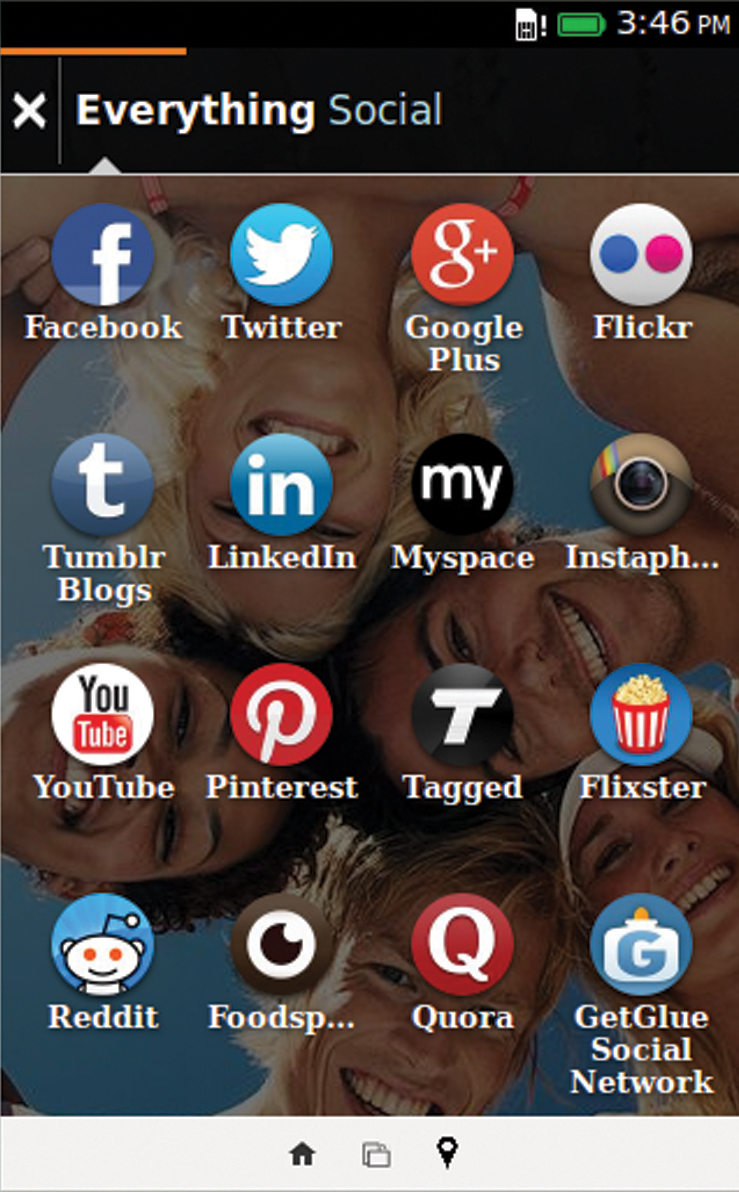Next-gen mobile OSes: what's in store?
A new frontier of Linux-based mobile operating systems
Sign up for breaking news, reviews, opinion, top tech deals, and more.
You are now subscribed
Your newsletter sign-up was successful
Ubuntu Touch is centred around Scopes. These work in more or less the same way that they do on the Unity desktop. Their purpose is to give the user a view not just on their own tablet, but the entire digital universe. The Scopes that come as standard allow you to search commercial music and video collections, as well as viewing your apps and a home screen. These are fine to give you a feel for who the system will work (and, incidentally, look gorgeous), but they're nowhere near good enough for a final product.
On the phone, these are far more important than on a desktop. Currently, it feels like Scopes only exist as an opportunity to sell content to users (music and films), rather than to help the user do something. We hope this will be rectified before the first release.
It's the feel of the user interface that really makes Ubuntu Touch different. Much of the control comes through swiping from off the edge of the screen onto the screen. Android 4 users will know this from the way to launch Google Now. Swipe onto the screen from the top, and you'll reveal the Settings menu, from the right will bring out the Launcher, the bottom will produce the Current Apps menu, and use the right to switch between currently running apps. The last swipe provides a really satisfying method of window management that almost feels like flicking through the pages of a book.
We did, however, find these gestures awkward until we liberated our tablet from its case. That pretty much brings us to the end of Ubuntu Touch. Perhaps you might expect us to talk about the app store, but at this point there isn't one. You can install extra software by logging in via your computer using adb shell and then using the familiar apt-get.
Firefox OS
A mobile phone OS built from web technologies.

Mozilla aren't an obvious organisation to enter the mobile phone industry - at least not as an OS developer - though this might be a wise move by the browser maker. In the past few years, there's been a big switch to WebKit based browsers (like Chrome and Safari). Though it's losing desktop market share, Firefox is still a major player.
However, in the mobile world, it barely registers as a contender. It is available for Android, but it has so little market share that it's hard to count. If the fashionable option that desktop computing is dead really is true, then Mozilla, too, is in serious trouble unless it can reverse its fortunes in the mobile market.
Sign up for breaking news, reviews, opinion, top tech deals, and more.
Even if (as seems likely) desktop computing does keep going, it's clear to us that mobile computing is growing and will soon account for a large proportion of web traffic. Many people view Firefox OS as an interesting side project by Mozilla, but we think it's more crucial to their retaining a dominant position in the browser wars. From a technical perspective, the Firefox OS is interesting because everything in the user interface, from the Marketplace to the phone dialer, is written in web technologies, such as HTML5 with CSS and JavaScript. This means it all fits together with the web in one seamless experience.
The fact that it uses web technologies doesn't mean you have to be online to make the most of it, though. The system includes various hooks that allow you to download apps to use offline. Through various bits of magic like WebGL, developers can also take advantage of graphics acceleration and other hardware features.
The operating system's interface isn't particularly revolutionary, but it is simple to use. This may be partially due to the fact that Mozilla has decided to initially target lowpower devices in developing countries.